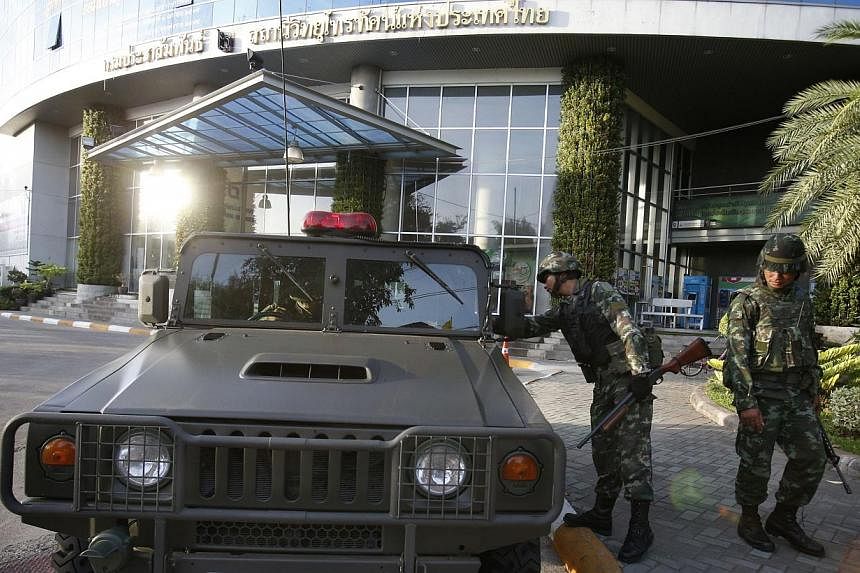Thailand's army imposed martial law nationwide on Tuesday after months of political turmoil. Here's a look at what martial law entails:
 Martial law gives military officers the power to:
Martial law gives military officers the power to:
- Take action against war or riots;
- Use arms to suppress unrest;
- Search, confiscate or occupy any premises or vehicles;
- Censor information;
- Block, search and control postal services;
- Activate the military court to judge on crimes within the area under martial law;
- Mobilise civilians to help the military;
- Procure resources such as vehicles or logistical materials to support military operations;
- Prohibit public gatherings, publications, broadcasting, transport, communication, travel, the movement of people or any action that the Defence Ministry deems necessary;
- Enforce curfews;
- Destroy, remove or adjust any premise or location for the purpose of military operations;
- Arrest and detain suspects for a maximum of seven days.
- People are not entitled to any compensation for damage incurred during such military operations;
- Martial law can only be ended with a Royal Decree.
Source: The Nation/Asia News Network

